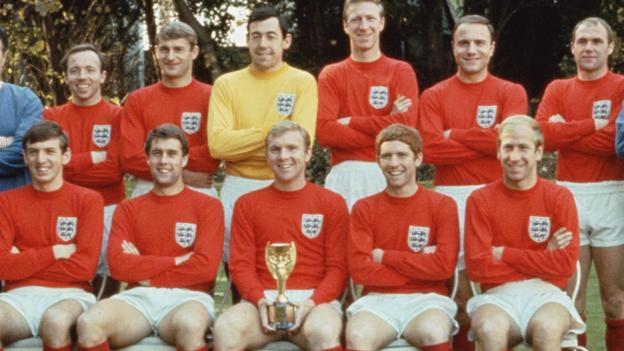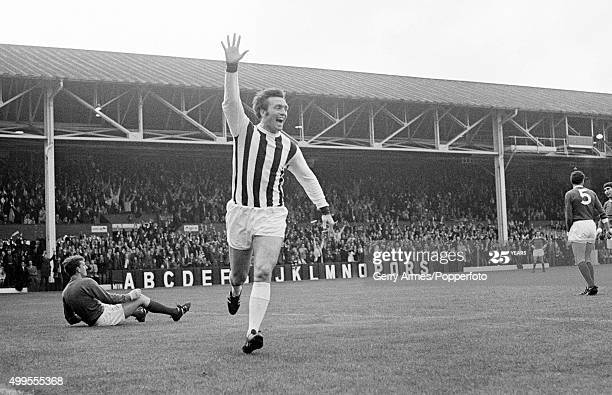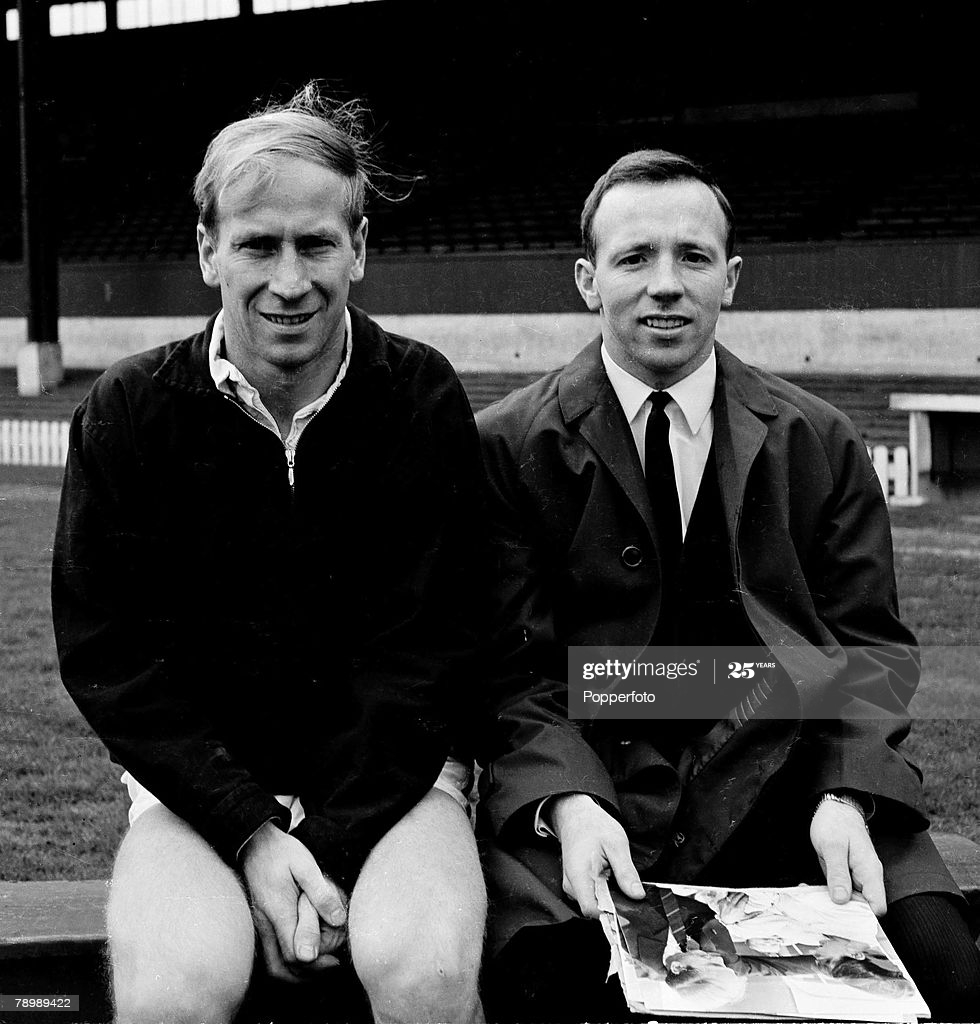Dementia In English Football: The Hidden Truth

Football has long been labelled ‘the beautiful game’ but there is surely nothing beautiful about the effect dementia has had on former footballers. The recent death of 1966 World Cup winning icon Nobby Stiles and Sir Bobby Charlton’s diagnosis of dementia have thrust this subject back into the limelight.
The NHS characterises dementia as a syndrome associated with an ongoing decline of brain function, leading to problems with memory loss, thinking speed, and mental sharpness.
The University of Glasgow led a study in 2019 that found a link between dementia and heading the ball in professional football.
The study investigated the causes of death of 7,676 former male Scottish professional footballers born between 1900 and 1976 and compared them with over 230,000 individuals from the general population. Their findings revealed that the former professional footballers had been three times more likely to die of a neurodegenerative disease than the general population.
The First Diagnosis
Jeff Astle, scorer of the winning goal in the 1968 FA Cup Final (also known as ‘The King’ by West Brom fans), is remembered as being the first British professional footballer to have died from chronic traumatic encephalopathy (CTE) in 2002.
CTE is a progressive, degenerative brain disease found in individuals with a history of head injuries.
In Astle’s case, it was the repeated heading of footballs causing low level brain trauma that resulted in his death at age 59. Dawn Astle, the centre-forward’s daughter and co-founder of the Jeff Astle Foundation, told Steve Cannane of ABC:
“A leading pathologist who examined his brain said it was very similar to a boxer’s…when it was proven football had killed him, I got in touch with the FA and asked what they were going to do about it and subsequently received a nasty letter from their solicitors.”
The foundation continues to raise awareness of brain injuries in football while the Football Association (FA) have only begun to take action.

The Dark Legacy of 1966
England’s 1966 World Cup winning team will always be revered in British sport, but a darker legacy appears to loom underneath the surface. Five of the starting 11 that played Germany in the World Cup final have been diagnosed with dementia since ending their careers.
Stiles, who battled with the syndrome, is one of only three Englishmen to win both the European Cup and World Cup and passed away on 30th October this year at the age of 78. Following his glittering career, Stiles was brought back to Manchester United to coach the class of ’92, but left the following year as United soared and his health declined.
He suffered a heart attack in 2002 and then a stroke a decade later before dementia and other health issues dominated his final years. John Stiles spoke to the Manchester Evening News about his father’s struggles and the tragic legacy of that ‘66 World Cup winning team.
“It’s my dad’s era who are really suffering now,” he said
“So many of his teammates at United and England have had it and ex-players that we know from that generation.”
The Charlton Brothers
Another football family deeply affected by dementia are the Charltons. Jack Charlton, a hero to both Ireland and Leeds United, died on the 10th of July this year at 85 as a result of dementia and lymphoma.
Charlton, who as manager led the Republic of Ireland to their first World Cup quarter final in Italy in 1990, spoke to the Mirror back in 2016 of his deteriorating condition, saying: “I haven’t got a memory now, I forget things easily.”
Widely considered to be England’s greatest ever footballer, it was announced recently that Jack’s brother Sir Bobby Charlton has also been diagnosed with dementia. The 83-year-old had been Manchester United and England’s record goalscorer.
His younger brother Tommy Charlton spoke of the affliction, telling the Daily Telegraph: “It is hard not to think it was linked to heading the ball… I had four uncles who all played football that were hit by dementia.”
Martin Peters and Ray Wilson, who were also members of that 1966 World Cup squad, were others diagnosed with dementia in recent years, and the team’s legendary goalkeeper Gordon Banks lambasted the FA back in 2018.
“The FA have done nothing for us.”
It’s a sentiment common among the many families of former professional footballers who have or are still affected by the syndrome.

From the FA to FIFA: The Response
In February 2020, the FA responded to the results published by the University of Glasgow and have since banned children under the age of 11 from heading in training. They also instructed youth coaches to make heading a ‘low priority’ for players up to age 18.
As for FIFA, a spokesperson told the BBC recently that it takes brain injuries in football “very seriously” and that it plans to implement the introduction of an “additional permanent substitution” for concussions, with a trial due as soon as permitted.
While the FA have taken measures to protect youth players, no such protocols have been introduced to protect current footballers. There is a belief that modern footballs are lighter and don’t soak up rainwater, therefore creating far less of a risk than in the past.
Neurosurgeon Dr. Willie Stewart rebuked that claim when speaking to the Times and said: “You could argue that the modern synthetic ball may be even more of a problem because it travels faster and doesn’t slow down.”
He and other experts are wary of the long term effects for current players who won’t know something is wrong till their 60s or 70s and by then it’s too late.
Research and What Now?
Following the death of Stiles, the FA announced to the BBC that they are committed to exploring further research to investigate the causes of death through brain diseases.
The Professional Footballers’ Association (PFA) are supporting two studies; one is investigating head injuries in sport and when players may start showing signs of dementia launched by the University of East Anglia. The other is with the Drake Foundation, who are recruiting 300 former players to aid research into links between heading the ball and concussion.
It is very rare for dementia to be caused by a single factor. Therefore, as the PFA Chief Executive Gordon Taylor said back in October 2019: “It is incumbent on football globally to come together to address this issue in a comprehensive and united manner.”
In not following the FA in banning the heading of footballs worldwide for children under the age of 11, FIFA has left itself open to widespread criticism. Although, with the recent diagnosis of football greats like Charlton and Gerd Muller in Germany, we can only hope that they will see sense.
One thought on “Dementia In English Football: The Hidden Truth”
Comments are closed.